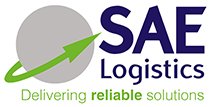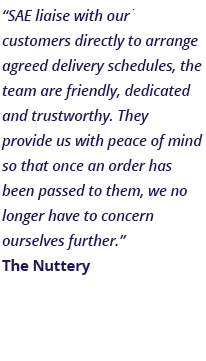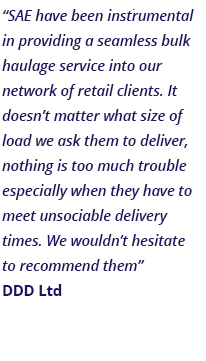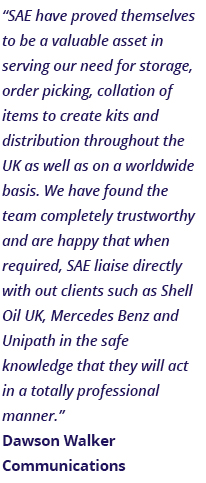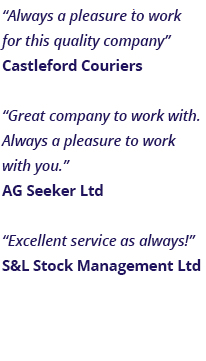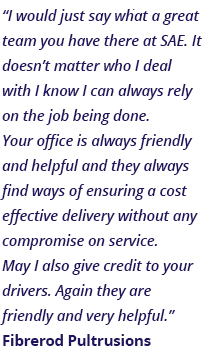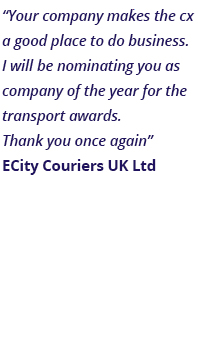
Working with a wide variety of business throughout the UK and Worldwide, SAE Logistics have been extra busy over the last few months helping our customers to prepare for Brexit which is scheduled on 31st January at 11pm. We have been working hard updating internal systems and processes, as well as assisting customers to bring in (and store) extra stock to limit the effects as changes come into effect.
But we have also been advising our clients on other aspects of Brexit that will affect their logistics in the months to come. There are still so many unknowns, especially whilst it remains unclear if the UK will leave having signed a withdrawal deal with the EU or not. That said, either way, Brexit is likely to impact on your business in both the short and long term – even if you do not trade internationally – from your supply chain through to tax and VAT implications. International trade is at the top of the list of concerns for many businesses and rightly so.

International trade
Whilst it’s hard to be specific given every business has a different situation, if you’re a business who exports to or imports from the EU, it’s likely you’ll be watching developments closely as a matter of course. There are 2 potential outcomes from the withdrawal agreement:
Deal: A Transition Agreement will be in place from the point the UK leaves the EU until the end of 2020 (or longer if extended), during which UK businesses will be able to import and export under existing arrangements, free of tariffs. After this period, it is envisaged that the terms of a yet to be negotiated trade deal will come into effect. These could include the introduction of new duties, customs declarations and documentation.
No Deal: With no Withdrawal Agreement in place, the UK will leave the EU on 31 January 2019, will be outside the single market and World Trade Organisation (WTO) rules will apply with no transitional period. Goods will be subject to customs clearance and inspections, while tariffs are expected to be imposed on goods that the UK sends to EU countries and on goods EU countries send to the UK. This is likely to cause increased paperwork, delays and have a knock-on effect on prices for some goods.
The government has listed its tariff schedule in the event of a no deal Brexit.
Your Brexit Checklist:
Our handy tops tips page on Custom clearance will have many of the details about clearing customs successfully for either a Deal or No Deal scenario. We have also prepared this handy checklist to make sure your business is ready.
1. Register for a UK and EU EORI number – UK businesses can register here. It only takes 10 minutes to apply.
If the UK leaves the EU with no agreement in place, traders will need a UK EORI number to import or export from the UK to the EU. EORI numbers are given to importers and exporters by EU country authorities for free. In the future, to trade between the EU and UK, the shipper and receiver will each need to be registered for an EORI in their respective country. Failure to register for an EORI number may result in increased costs and delays.
2. Agree Incoterms (terms of delivery) with your customers
It’s a good idea to make sure you have a clear written contract to minimise the risk of misunderstandings.
This will include:
- Where the goods will be delivered
- Who arranges and pays for the transport
- Who is responsible for insuring the goods and who pays the insurance premium
- Who handles customs procedures and who pays duties and taxes.
In the event of a No Deal Brexit, Incoterms will be an important piece of information on the commercial invoice.
3. Know how to complete commercial invoices and apply for licences and certificates
Every shipment will need a commercial invoice with information for customs authorities. This helps the authorities assess if the goods can move in or out of a country and what, if any, controls are needed. It also helps the authorities determine duties and taxes. It is vital to supply an invoice with the right information as it reduces the potential for delay.
4. Know how to describe and classify your goods
If you don’t include the HS or commodity code (a list of numbers used to classify a product for taxes and duties and any necessary restrictions) on the commercial invoice and other shipping documents, it could delay the shipment and you risk the receiver paying the incorrect duties and VAT.
You also need to correctly describe (in detail) the item, confirm the origin and also the market value. You can find out more about this here.
5. Understand customs & clearance requirements and any duty or VAT implications
It is important that your business understands the duties and VAT implications dependant on whether we leave the EU with a withdrawal agreement or NO Deal. Duty charges are set by the country you export to and depend on the type of goods, where they come from and their value. Currently there is no duty on goods which originate in an EU country or which have already been imported with charges already paid. Once in the EU there is no more duty to pay if the goods are transported from EU country to EU country.
The British government acknowledges that with no exit agreement in place, the EU would consider the UK “a third country for all purposes”. It has published details of its own no-deal preparations.
6. Make sure your receivers / importers know about potential changes
Do your receivers and importers know what the local requirements for imports are in their country? Are they aware of the potential import VAT & Duty that they may have to pay? How are you working with your customers to ensure there are no delays at the point of importation? Do you have all the correct details for the completion of export and import declarations? It is important to include your correct address, contact details, phone/mobile number and email details, as well as the same information for your receiver.
A good logistics company can help ensure that you have all of this information to hand.
7. Talk to us
Whatever the outcome on the 31st January we are here to help. Our expert team are here to guide you through future regulations and processes. If you would like unique advice on how you can prepare your business for Brexit, call us today on 01895 825258.
